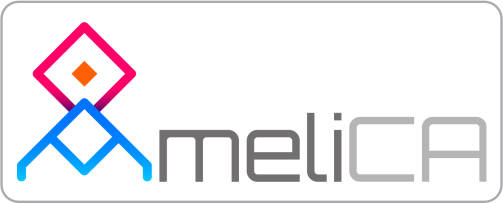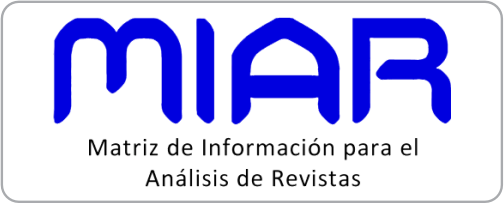Key factors influencing initial learning in computer programming
DOI:
https://doi.org/10.51252/rcsi.v4i2.743Keywords:
academic performance, computer science, higher-order thinking, motivation, self-efficacyAbstract
Learning computer programming has become an essential skill in the digital age, presenting significant challenges and opportunities for students. This study examined the levels of motivation and perceived self-efficacy as factors in the initial learning of computer programming and their possible correlation with the academic performance of Computer Science students at a university in Puerto Rico. The approach was quantitative, using a survey research design (cross-sectional), with a self-administered online questionnaire. Evidence of validity related to content, response process, and internal structure was collected, and a non-probability convenience sampling was employed. The data were processed using the SPSS statistical package. The results showed a significant positive Spearman correlation between the items of the self-efficacy and motivation subscales with the academic performance reported by the participants in the introductory programming course. The study concluded that the self-efficacy and motivation of programming learners positively affect academic performance, contributing to the development of higher-order thinking skills such as problem-solving and creativity, highlighting them as fundamental factors in the initial learning of computer programming.
References
Bandura, A. (1997). Self-efficacy: The exercise of control. New York, NY: W.H. Freeman and Co.
Creswell, J. W. (2008). Research design: Qualitative, quantitative and mixed methods approaches (3rd ed.). Thousand Oaks, CA: SAGE Publications, Inc.
De Giusti, L. C., Sanz, V., & De Giusti, A. (2019). Evolución de un curso inicial de programación a un enfoque multiparadigma. Análisis y resultados. Revista Iberoamericana de Tecnología en Educación y Educación en Tecnología, 24, 7-14. https://doi.org/10.24215/18509959.24.e01 DOI: https://doi.org/10.24215/18509959.24.e01
Erol, O. (2020). How Do Students' Attitudes towards Programming and Self-Efficacy in Programming Change in the Robotic Programming Process?. International Journal of Progressive Education, 16(4), 13-26. https://doi.org/10.29329/ijpe.2020.268.2 DOI: https://doi.org/10.29329/ijpe.2020.268.2
Figueiredo, J., & García-Peñalvo, F. J. (2020). Increasing student motivation in computer programming with gamification. 2020 IEEE Global Engineering Education Conference (EDUCON), 997–1000. https://doi.org/10.1109/EDUCON45650.2020.9125283 DOI: https://doi.org/10.1109/EDUCON45650.2020.9125283
Gliem, J., & A. Gliem, R. (2003). Calculating, interpreting and reporting Cronbach’s Alpha reliability coefficient for Likert-Type scales. The Midwest Research to Practice Conference in Adult, Continuing, and Community Education, Columbus, OH. https://hdl.handle.net/1805/344
Ibarra-Zapata, R., Castillo-Cornelio, J., Trujillo-Natividad, P., García-Villegas, C., Yanac-Montesino, R., & Pando, B. (2021). Enseñanza-aprendizaje de programación de computadoras: avances en la última década. Revista Científica/Revista Científica, 42(3), 290-303. https://doi.org/10.14483/23448350.18339 DOI: https://doi.org/10.14483/23448350.18339
Jiménez-Toledo, J. A., Collazos, C., & Revelo-Sánchez, O. (2019). Consideraciones en los procesos de enseñanza-aprendizaje para un primer curso de programación de computadores: una revisión sistemática de la literatura. TecnoLóGicas, 22, 83-117. https://doi.org/10.22430/22565337.1520 DOI: https://doi.org/10.22430/22565337.1520
Korkmaz, Ö., & Altun, H. (2014). Adapting Computer Programming Self-Efficacy Scale and Engineering Students' Self-Efficacy Perceptions. Online Submission, 1(1), 20-31. https://doi.org/10.17275/per.14.02.1.1 DOI: https://doi.org/10.17275/per.14.02.1.1
Kovari, A., & Katona, J. (2023). Effect of software development course on programming self-efficacy. Education And Information Technologies, 28(9), 10937-10963. https://doi.org/10.1007/s10639-023-11617-8 DOI: https://doi.org/10.1007/s10639-023-11617-8
Ling, H. C., Hsiao, K. L., & Hsu, W. C. (2021). Can Students' Computer Programming Learning Motivation and Effectiveness Be Enhanced by Learning Python Language? A Multi-Group Analysis. Frontiers in psychology, 11, 600814. https://doi.org/10.3389/fpsyg.2020.600814 DOI: https://doi.org/10.3389/fpsyg.2020.600814
Luxton-Reilly, A., Simon, Albluwi, I., Becker, B. A., Giannakos, M., Kumar, A. N., ... & Szabo, C. (2018, July). Introductory programming: a systematic literature review. In Proceedings companion of the 23rd annual ACM conference on innovation and technology in computer science education (pp. 55-106). https://doi.org/10.1145/3293881.329577 DOI: https://doi.org/10.1145/3293881.3295779
McMillan, J. H. (2004). Educational research: Fundamentals for the consumer (4a ed.). Boston, MA: Allyn and Bacon.
Medina-Díaz, M. del R. (2010). Construcción de cuestionarios para la investigación educativa. San Juan, PR: ExPERTS Consultants.
Arévalo Mercado, C., Muñoz Andrade, E. L. & Gómez Reynoso, J. M. (2018). El efecto de la autoeficacia y el trabajo colaborativo en estudiantes novatos de programación. Investigación y Ciencia: de la Universidad Autónoma de Aguascalientes, (74), 73-80. https://doi.org/10.33064/iycuaa2018741760 DOI: https://doi.org/10.33064/iycuaa2018741760
Mohanarajah, S. (2018). Increasing intrinsic motivation of programming students: Towards fix and play educational games. Issues in Informing Science and Information Technology, 15, 69-77. https://doi.org/10.28945/4027 DOI: https://doi.org/10.28945/4027
Park, H., Kim, K., Robertson, C., & Kim, D. (2019). The Effect of Memorization on the Retention and Learning Acquisition of Programming Practice. Journal of Strategic Innovation and Sustainability, 14(2). https://doi.org/10.33423/jsis.v14i2.1378 DOI: https://doi.org/10.33423/jsis.v14i2.1378
Rojas-López, A., & García-Peñalvo, F. J. (2020). Evaluación del pensamiento computacional para el aprendizaje de programación de computadoras en educación superior. Revista de Educación a Distancia (RED), 20(63). https://doi.org/10.6018/red.409991 DOI: https://doi.org/10.6018/red.409991
Rossi, T., Trevisol, A., Santos-Nunes, D. D., Dapieve-Patias, N., & Von Hohendorff, J. (2020). Autoeficacia general percibida y motivación para aprender en adolescentes de educación media. Acta Colombiana de Psicologia, 23(1), 254-263. https://doi.org/10.14718/acp.2020.23.1.12 DOI: https://doi.org/10.14718/ACP.2020.23.1.12
Ryan, R. M., & Deci, E. L. (2020). Intrinsic and extrinsic motivation from a self-determination theory perspective: Definitions, theory, practices, and future directions. Contemporary Educational Psychology, 61, 101860. https://doi.org/10.1016/j.cedpsych.2020.101860 DOI: https://doi.org/10.1016/j.cedpsych.2020.101860
Tekios, R. (2024, 21 marzo). La demanda de software está superando rápidamente la oferta de talento calificado. TEKIOS. https://tekiosmag.com/2024/03/28/la-demanda-de-software-esta-superando-rapidamente-la-oferta-de-talento-calificado/
Vera Mosquera, J. F., & Argüello Fiallos, B. E. (2019). El aprendizaje de la programación de computadoras para futuros docentes informáticos. Revista Iberoamericana De La Educación, 2(1). https://doi.org/10.31876/ie.v2i1.12 DOI: https://doi.org/10.31876/ie.v2i1.12

Published
How to Cite
Issue
Section
License
Copyright (c) 2024 Brenda P. Rodríguez-Villanueva, Roberto D. Martínez-Mejía

This work is licensed under a Creative Commons Attribution 4.0 International License.
The authors retain their rights:
a. The authors retain their trademark and patent rights, as well as any process or procedure described in the article.
b. The authors retain the right to share, copy, distribute, execute and publicly communicate the article published in the Revista Científica de Sistemas e Informática (RCSI) (for example, place it in an institutional repository or publish it in a book), with an acknowledgment of its initial publication in the RCSI.
c. Authors retain the right to make a subsequent publication of their work, to use the article or any part of it (for example: a compilation of their works, notes for conferences, thesis, or for a book), provided that they indicate the source of publication (authors of the work, journal, volume, number and date).














